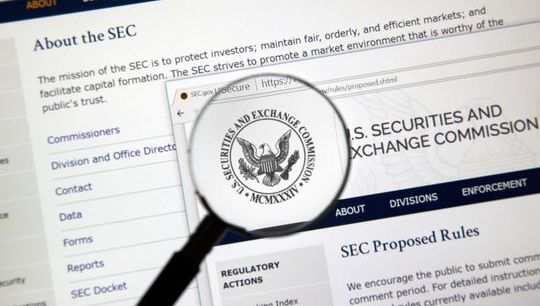Press Release: AIMA Publishes Guidance on Digital Asset Custody
Published: 27 April 2022
- The past year witnessed an upsurge of interest relating to digital assets among mainstream institutions and investors
- Secure custody of digital assets is fundamental to meeting the needs of the various market stakeholders within the digital assets ecosystem
- AIMA’s new guide provides sound practices and key considerations around due diligence for investors determining how to custody their digital assets
The Alternative Investment Management Association (AIMA), together with leading digital asset custodians and industry experts, has today published a new industry guide on digital asset custody for institutional investors (available for download here).
The guide has been primarily designed for those who are seeking the services of a digital asset custodian or, to the extent legally permissible, a custodial infrastructure provider.
The guide provides sound practices and key considerations around due diligence for institutional investors determining how to custody their digital assets.
It has been written by a cross section of practitioners, as the custody of digital assets is cross-functional in nature, ranging from technologists and cyber security professionals to legal and compliance teams.
Co-sponsored by ECI and PwC, the guide was produced with contributions from Albourne Partners, Anchorage Digital, Apex Group, Barclays Investment Bank, Capco, Coinbase, CMS Switzerland, Copper, Dagger Consulting LLC, Digivault, Fidelity Digital Assets, NYDIG, Travers Smith LLP, UI Enlyte, and Zodia Custody.
This guide is the initiative of AIMA’s Digital Assets Working Group. This group is a cross section of around 300 senior industry experts including institutional investors, custodians, exchanges and other service providers. It is tasked with driving AIMA’s regulatory engagement, thought-leadership initiatives, and operational guidance in the area of digital assets.
How does custody of digital assets work?
The concept of digital asset custody revolves around the safekeeping of a private key. However, as the private keys are used to store, manage, and transfer digital assets by the owner and help with the decryption of messages and authentication of transactions, they represent a single point of failure in the system. Therefore, private keys require sophisticated technologies to prevent theft, loss or destruction. It is the control and management of these private keys which have given rise to the frameworks supporting the custody of digital assets as a distinct and specialist service offering.
While keeping a private key safe is fundamentally a technical need entailing specific hygiene protocols, when embedded within a commercial service offering, potential users of that service need to consider the terms upon which the service offering is provided, the regulatory framework sitting around the custody provider, any insurance provisions that are required or are in place and the legal basis upon which the assets are held.
Commenting on the guide, Jack Inglis, CEO at AIMA, said:
“Hedge fund allocations to digital assets continue to gain traction and AIMA is well positioned to assist our members with operational guidance around this growing asset class through our working groups, market research and sound practice guides. This guide on digital asset custody aims to provide industry guidance and key considerations for institutional investors determining how to custody their digital assets.
“My thanks to all our members who contributed to making this excellent resource for investors.”
Commenting on the guide, Haydn Jones, Director and Senior Blockchain Market Specialist at PwC UK said:
“This document, authored collectively, with input from many of the leading companies in the cryptocurrency custody industry, represents an accessible guide for those seeking to understand the principles of custodying digital assets. With in excess of $100 trillion of traditional assets under management globally, as allocators seek exposure to alternative markets such as crypto, and emerging sub-classes like NFTs, understanding the core principles of safe custody, is paramount.”
Commenting on the guide, Richard Itri, Chief Innovation Officer at ECI said:
“As investment funds increasingly adopt the use of digital assets, this guide serves as an invaluable tool for navigating the use of private keys for secure digital asset ownership. Technology and regulations are ever-changing but secure asset custody remains vital. Drawing from the knowledge of numerous industry experts, this guide functions to provide funds the guidance needed to facilitate the understanding of the relationship between innovation and regulation.”
**********
About AIMA
The Alternative Investment Management Association (AIMA) is the global representative of the alternative investment industry, with around 2,100 corporate members in over 60 countries. AIMA’s fund manager members collectively manage more than $2.5 trillion in hedge fund and private credit assets.
AIMA draws upon the expertise and diversity of its membership to provide leadership in industry initiatives such as advocacy, policy and regulatory engagement, educational programmes and sound practice guides. AIMA works to raise media and public awareness of the value of the industry.
AIMA is committed to developing skills and education standards and is a co-founder of the Chartered Alternative Investment Analyst designation (CAIA) – the first and only specialised educational standard for alternative investment specialists. AIMA is governed by its Council (Board of Directors). For more details go to www.aima.org.
About ECI
ECI is the leading provider of managed services, cyber security and business transformation for mid-market financial services organisations across the globe. From its unmatched range of services, ECI provides stability, security and improved business performance, freeing clients from technology concerns and enabling them to focus on running their businesses.
More than 1,000 customers worldwide with over $3 trillion of assets under management put their trust in ECI.
We are headquartered in Boston and have offices across the United States, Europe and Asia.
For further information, please visit www.eci.com.
About PwC
At PwC, our purpose is to build trust in society and solve important problems. Whether you’re an innovator, an investor, or a global financial services provider, our teams are here to help. Changing customer expectations and major macroeconomic forces continue to challenge the financial services industry to leverage technology, to stay relevant and get ahead. We firmly believe that collaboration and partnerships are key to the future of the industry, so how can the ecosystem come together to create commercial success and good customer outcomes? We help clients across the financial services industry to navigate the digital ecosystem, deliver on their ambitions and to do so at speed:
- we help incumbent institutions harness the power of technology as they shape their businesses for the future;
- we help digitally native challengers as they seek to disrupt the traditional market;
- we help B2B FinTechs of all shapes and sizes on their journey as they scale and grow; and
- we help investors in FinTech to create and capture value across all stages of the deal lifecycle.
We’re a network of firms in 155 countries with over 284,000 people who are committed to delivering quality in assurance, advisory and tax services. Find out more and tell us what matters to you by visiting us at www.pwc.com/gx/en/about/new-ventures/crypto-center.html.








